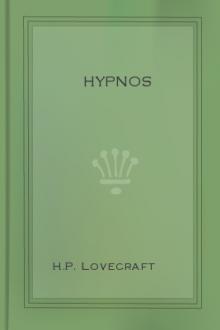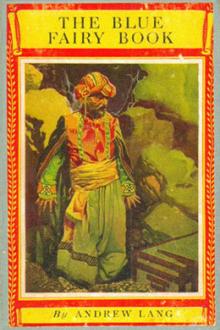
interpreted dreams, and the gods have laughed. One man with Oriental eyes has said that all time and space are relative, and men have laughed. But even that man with Oriental eyes has done no more than suspect. I had wished and tried to do more than suspect, and my friend had tried and partly succeeded. Then we both tried together, and with exotic drugs courted terrible and forbidden dreams in the tower studio chamber of the old manor-house in hoary Kent.Among the agonies of these after days is

g More's lifetime. Its first publication in this country was in the English translation, made in Edward's VI.'s reign (1551) by Ralph Robinson. It was translated with more literary skill by Gilbert Burnet, in 1684, soon after he had conducted the defence of his friend Lord William Russell, attended his execution, vindicated his memory, and been spitefully deprived by James II. of his lectureship at St. Clement's. Burnet was drawn to the translation of "Utopia" by the same sense of

nt pasture for dairy-farming and water-power for both tramway and funicular, and where the necessary capital could be borrowed; and the other one hunted about for marks of stratification and upheaval, and ransacked his memory for historical data about the various tribes originally inhabiting that country."I suppose you're a painter and regretting you haven't brought your sketching materials?" said the scientific man, always interested in the causes of phenomena, even such trifling

"Him fella my brother belong me," was the answer. "Him fella dietoo much." "You sing out, him fella brother belong you die too much," thewhite man went on in threatening tones. "I cross too much alongyou. What name you sing out, eh? You fat-head make um brotherbelong you die dose up too much. You fella finish sing out,savvee? You fella no finish sing out I make finish damn quick." He threatened the wailer with his fist, and the black cowered down,glaring
How to Write Letters (Formerly The Book of Letters), Mary Owens Crowther [book series to read txt] 📗

F A LETTERThe mechanical construction of a letter, whether social, friendly, or business, falls into six or seven parts. This arrangement has become established by the best custom. The divisions are as follows: 1. Heading 2. Inside address (Always used in business letters but omitted in social and friendly letters) 3. Salutation 4. Body 5. Complimentary close 6. Signature 7. Superscription 1. THE HEADING The heading of a letter contains the street address, city, state, and the date. The

nnas per seer. Onion-seed, or /cullinga/ " 5 to 8 annas " Stick cinnamon, or /dalcheenee/ -+ Cardamoms, or /elachee/ | Mixed; prices range from Rs. Cloves, or /loung/ +- 3-14 to 4 per seer. Nutmeg, or /jyephall/ | Mace, or /jowttree/ -+However high prices may range, one rupee-worth of mixed condiments, including hotspice, will suffice for a month's consumption for a party of from four to six adults, allowing for three curries per day, cutlets and made dishes included. GRAVY CURRIES

The Willows by Algernon Blackwood The Shadows On The Wall by Mary E. Wilkins Freeman The Messenger by Robert W. Chambers Lazarus by Leonid Andreyev The Beast With Five Fingers by W. F. Harvey The Mass Of Shadows by Anatole France What Was It? by Fitz-James O'Brien The Middle Toe Of The Right Foot by Ambrose Bierce The Shell Of Sense by Olivia Howard Dunbar The Woman At Seven Brothers by Wilbur Daniel Steele At The Gate by Myla Jo Closser Ligeia by Edgar Allan Poe The Haunted Orchard by Richard

EOPATRA. Hear the ambassadors. ANTONY. Fie, wrangling queen! Whom everything becomes,--to chide, to laugh, To weep; whose every passion fully strives To make itself in thee fair and admir'd! No messenger; but thine, and all alone To-night we'll wander through the streets and note The qualities of people. Come, my queen; Last night you did desire it:--speak not to us. [Exeunt ANTONY and CLEOPATRA, with their Train.] DEMETRIUS. Is Caesar with Antonius priz'd so slight? PHILO. Sir, sometimes when

earfully hungry, and made terrible havoc among the mice.Then the queen of the mice held a council. "These cats will eat every one of us," she said, "if the captain of the ship does not shut the ferocious animals up. Let us send a deputation to him of the bravest among us." Several mice offered themselves for this mission and set out to find the young captain. "Captain," said they, "go away quickly from our island, or we shall perish, every mouse of us."

nd fits of creative energy. And then its pleasure, its repose,are an exhausting debauch, swarthy and black with blows, white withintoxication, or yellow with indigestion. It lasts but two days, butit steals to-morrow's bread, the week's soup, the wife's dress, thechild's wretched rags. Men, born doubtless to be beautiful--for allcreatures have a relative beauty--are enrolled from their childhoodbeneath the yoke of force, beneath the rule of the hammer, the chisel,the loom, and have been

interpreted dreams, and the gods have laughed. One man with Oriental eyes has said that all time and space are relative, and men have laughed. But even that man with Oriental eyes has done no more than suspect. I had wished and tried to do more than suspect, and my friend had tried and partly succeeded. Then we both tried together, and with exotic drugs courted terrible and forbidden dreams in the tower studio chamber of the old manor-house in hoary Kent.Among the agonies of these after days is

g More's lifetime. Its first publication in this country was in the English translation, made in Edward's VI.'s reign (1551) by Ralph Robinson. It was translated with more literary skill by Gilbert Burnet, in 1684, soon after he had conducted the defence of his friend Lord William Russell, attended his execution, vindicated his memory, and been spitefully deprived by James II. of his lectureship at St. Clement's. Burnet was drawn to the translation of "Utopia" by the same sense of

nt pasture for dairy-farming and water-power for both tramway and funicular, and where the necessary capital could be borrowed; and the other one hunted about for marks of stratification and upheaval, and ransacked his memory for historical data about the various tribes originally inhabiting that country."I suppose you're a painter and regretting you haven't brought your sketching materials?" said the scientific man, always interested in the causes of phenomena, even such trifling

"Him fella my brother belong me," was the answer. "Him fella dietoo much." "You sing out, him fella brother belong you die too much," thewhite man went on in threatening tones. "I cross too much alongyou. What name you sing out, eh? You fat-head make um brotherbelong you die dose up too much. You fella finish sing out,savvee? You fella no finish sing out I make finish damn quick." He threatened the wailer with his fist, and the black cowered down,glaring
How to Write Letters (Formerly The Book of Letters), Mary Owens Crowther [book series to read txt] 📗

F A LETTERThe mechanical construction of a letter, whether social, friendly, or business, falls into six or seven parts. This arrangement has become established by the best custom. The divisions are as follows: 1. Heading 2. Inside address (Always used in business letters but omitted in social and friendly letters) 3. Salutation 4. Body 5. Complimentary close 6. Signature 7. Superscription 1. THE HEADING The heading of a letter contains the street address, city, state, and the date. The

nnas per seer. Onion-seed, or /cullinga/ " 5 to 8 annas " Stick cinnamon, or /dalcheenee/ -+ Cardamoms, or /elachee/ | Mixed; prices range from Rs. Cloves, or /loung/ +- 3-14 to 4 per seer. Nutmeg, or /jyephall/ | Mace, or /jowttree/ -+However high prices may range, one rupee-worth of mixed condiments, including hotspice, will suffice for a month's consumption for a party of from four to six adults, allowing for three curries per day, cutlets and made dishes included. GRAVY CURRIES

The Willows by Algernon Blackwood The Shadows On The Wall by Mary E. Wilkins Freeman The Messenger by Robert W. Chambers Lazarus by Leonid Andreyev The Beast With Five Fingers by W. F. Harvey The Mass Of Shadows by Anatole France What Was It? by Fitz-James O'Brien The Middle Toe Of The Right Foot by Ambrose Bierce The Shell Of Sense by Olivia Howard Dunbar The Woman At Seven Brothers by Wilbur Daniel Steele At The Gate by Myla Jo Closser Ligeia by Edgar Allan Poe The Haunted Orchard by Richard

EOPATRA. Hear the ambassadors. ANTONY. Fie, wrangling queen! Whom everything becomes,--to chide, to laugh, To weep; whose every passion fully strives To make itself in thee fair and admir'd! No messenger; but thine, and all alone To-night we'll wander through the streets and note The qualities of people. Come, my queen; Last night you did desire it:--speak not to us. [Exeunt ANTONY and CLEOPATRA, with their Train.] DEMETRIUS. Is Caesar with Antonius priz'd so slight? PHILO. Sir, sometimes when

earfully hungry, and made terrible havoc among the mice.Then the queen of the mice held a council. "These cats will eat every one of us," she said, "if the captain of the ship does not shut the ferocious animals up. Let us send a deputation to him of the bravest among us." Several mice offered themselves for this mission and set out to find the young captain. "Captain," said they, "go away quickly from our island, or we shall perish, every mouse of us."

nd fits of creative energy. And then its pleasure, its repose,are an exhausting debauch, swarthy and black with blows, white withintoxication, or yellow with indigestion. It lasts but two days, butit steals to-morrow's bread, the week's soup, the wife's dress, thechild's wretched rags. Men, born doubtless to be beautiful--for allcreatures have a relative beauty--are enrolled from their childhoodbeneath the yoke of force, beneath the rule of the hammer, the chisel,the loom, and have been